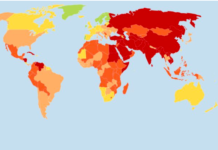Writing essays is an essential academic skill for students at all levels. Essays are a common assessment method, whether you’re in high school or seeking a degree at a university. However, a lot of students have trouble avoiding typical traps that have an impact on their learning process and grades. We’ll look at five common essay writing mistakes in this post and offer advice on preventing them.
- Lack of Planning and Organization
One of the most common pitfalls students face in essay writing is diving headfirst into the writing process without proper planning and organization. This lack of structure can result in a haphazard essay that lacks coherence and a clear argument. To avoid this mistake, starting with a well-thought-out plan is crucial. Before you begin writing, create an outline that includes the introduction, body paragraphs, and conclusion. This will help you structure your essay and ensure your ideas flow logically. If you find this difficult, you can also ask for help from professional writers at ukwritings.com. These writers can write your essay for you in a well-thought-out and structured manner. This will remove your assignment stress, enabling you to practice planning and organisation better.
Additionally, time management is essential. Allocate sufficient time for each stage of the essay-writing process, from researching and outlining to drafting and revising. Rushing through these steps can lead to a poorly constructed essay with errors and inconsistencies.
- Neglecting Research
Another common mistake is neglecting thorough research. To write an effective essay, you must support your arguments and claims with credible sources. Refrain from relying solely on personal opinions or limited knowledge to weaken your essay’s quality and impact. Start your research early, use reputable sources, and be critical when evaluating information. Make sure to cite all your sources to avoid plagiarism properly.
- Failing to Edit and Proofread
Even the most well-researched and structured essays can have poor grammar, spelling errors, and awkward phrasing. Failing to edit and proofread your essay is a major pitfall that can be easily avoided. After completing your initial draft, set it aside for a while to gain some distance from the text. Then, return to it with fresh eyes and a critical mindset. Look for grammatical errors, clarity issues, and inconsistencies in your arguments.
Consider seeking help from peers, professors, or professional editing services for a fresh perspective. These extra sets of eyes can spot mistakes that you might have missed. Proper editing and proofreading can significantly enhance the overall quality of your essay.
- Overcomplicating Language
Using complex vocabulary and convoluted sentences might seem like a way to impress your professors, but it often backfires. Overcomplicating language can make your essay difficult to understand and may detract from the clarity of your arguments. Instead, aim for clarity and conciseness. Use straightforward language to convey your ideas effectively. If a simpler word can express your point just as well as a complex one, choose the simpler word.
- Ignoring the Instructions
Every essay assignment comes with specific instructions provided by your instructor. Ignoring these instructions is a common mistake that can result in a lower grade. Before you begin writing, read the assignment guidelines carefully. Pay attention to formatting requirements, word limits, and any specific questions or prompts provided. Adhering to these instructions is essential for meeting your professor’s expectations.
Concluding Thoughts
Writing essays is a skill that can be developed with repetition and close attention to detail. You can dramatically raise the quality of your essays and, consequently, your academic achievement by avoiding these typical mistakes. Writing an essay successfully requires careful planning, in-depth research, careful editing and proofreading, using clear language, and adhering to guidelines.





























































